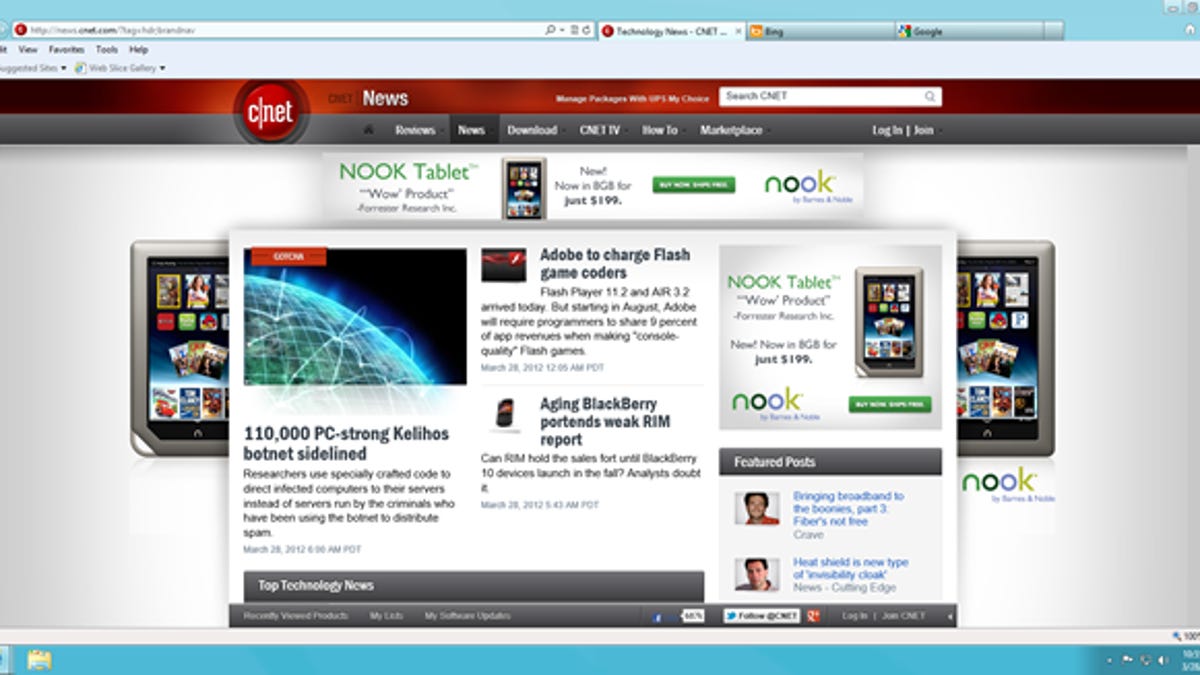Windows 8 sticks with IE10 Do Not Track by default
Microsoft is enabling the Do Not Track feature in the version of Windows 8 that's off to PC makers, guaranteeing a pushback from advertisers.

Microsoft is not likely to win over advertisers with its decision to turn on Internet Explorer 10's Do Not Track feature in the RTM version of Windows 8.
The Do Not Track, or DNT, feature is designed to stop third-party Web sites from tracking your online activity. Web sites that find Do Not Track turned on in your browser are supposed to back off. Most browsers leave the setting turned off, leaving it up to the user to decide whether to enable it.
But a blog post from Microsoft Chief Privacy Officer Brendon Lynch confirmed that the company is sticking with its ongoing policy to turn DNT on by default. The decision to enable the setting in the Windows 8 Release Preview will carry over into the Windows 8 RTM.
"In conjunction with the release of the Release Preview of Windows 8 in late May, we announced that we would be turning 'on' a DNT signal as part of the default configuration for IE10," Lynch explained. "Since then, we have conducted additional consumer research that confirmed strong support for our 'consumer-privacy-first' approach to DNT."
Microsoft has asserted all along that enabling the feature by default is in the best interests of its customers. But advertisers are likely to continue to raise a stink.
The Digital Advertising Alliance, which represents advertisers, said recently that it agreed to honor the DNT feature as long as it was not enabled by default. The DAA has previously complained that Microsoft's decision runs counter to an agreement established earlier this year with the White House. Upset by Microsoft's policy, advertisers could simply decide to ignore the setting in Internet Explorer.
Though DNT will be turned on by default, Windows 8 users will have control of the feature during the setup process. Those who choose the Windows 8 "Express Settings" option will be informed that DNT will automatically be turned on. People who instead opt to "customize" their setup will be able to turn the setting on or off. Either way, the setting can always be switched on or off.
A representative for Microsoft told CNET that the company had no comment beyond the information in Lynch's blog.
Update, 10:15 a.m. PT: Adds response from Microsoft.

